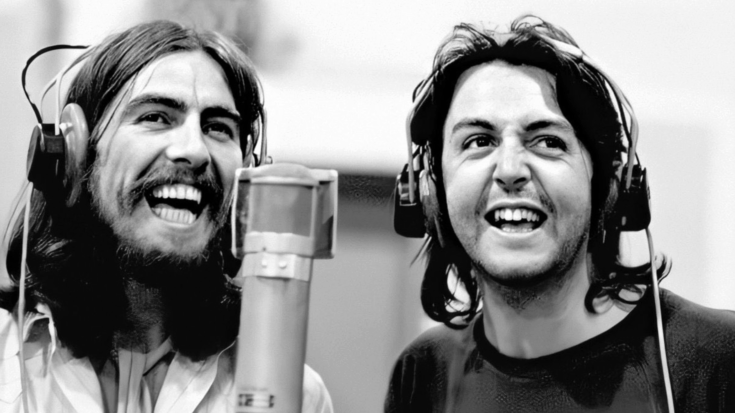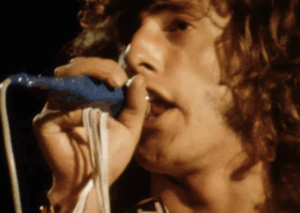On This Day in 1973, George Harrison Claims the Billboard 200 Top Spot, Displacing Paul McCartney, His Album Would Earn Gold Certification

via HoTube O.N / YouTube
Chart Shake-Up and Immediate Sales
On June 23, 1973, George Harrison’s Living in the Material World leaped to number one on the Billboard 200, ending the brief reign of Paul McCartney and Wings’ Red Rose Speedway at the summit. The new leader stayed at the peak for five straight weeks, showing that Beatle fans were eager to follow Harrison’s solo path just as closely as McCartney’s. Within forty-eight hours of reaching the top, the Recording Industry Association of America certified the album Gold for half a million U.S. sales.
The record’s commercial spark was helped by its lead single, “Give Me Love (Give Me Peace on Earth),” which hit number one on the Billboard Hot 100 and reached number eight in the U.K. That uplifting song offered a gentle hook and a hopeful message that balanced the album’s deeper reflections on faith, fame, and responsibility.
View this post on Instagram
Making the Record
Living in the Material World was tracked mainly in late 1972 and early 1973 at Harrison’s home studio, FPSHOT, in Oxfordshire. He assembled a tight core of friends dubbed the “Material World Band”: pianist Nicky Hopkins, bassist Klaus Voormann, keyboard player Gary Wright, and drummer Jim Keltner. Ringo Starr also dropped by to add extra percussion on several takes. Harrison played nearly all the guitar parts himself, choosing understated tones instead of the wall-of-sound he used on All Things Must Pass.
Co-producing with engineer Phil McDonald, Harrison trimmed lush overdubs in favor of clear vocals, acoustic guitars, and subtle string passages arranged by John Barham. The scaled-down approach gave tracks like “The Light That Has Lighted the World” a quiet strength, while the title cut balanced slide-guitar riffs with Indian-inspired rhythms from tabla player Zakir Hussain.
Lyrics, Mood, and Message
Many songs wrestle with the clash between spiritual goals and worldly success. In “Sue Me, Sue You Blues,” Harrison vents frustration over tangled business suits left from the Beatles’ breakup. Be Here Now” urges listeners to slow down and value the present moment, echoing his growing devotion to Hindu teaching. Critics at first called the record “preachy,” yet Rolling Stone praised its sincere tone, calling it a “pop classic” for seekers of deeper meaning.
Over time, fans embraced the honesty. In Rolling Stone’s first all-time list, the album landed at number 331; in the 2020 revision it rose to 302, reflecting renewed respect for its plainspoken power.
Enduring Legacy
Harrison later joked that making the album was “like going back to school,” because he sang every guide vocal live with the band and refused studio polish. That choice shaped an intimate sound that modern reissues still highlight. A 50th-anniversary remix added alternate takes and brought hidden details—light tambura drones, extra slide licks—to the surface for new ears.
Today, Living in the Material World stands as a snapshot of a former Beatle balancing chart success with a search for inner calm, proving that rough edges and quiet faith can top the charts, even in a loud, competitive year like 1973.













